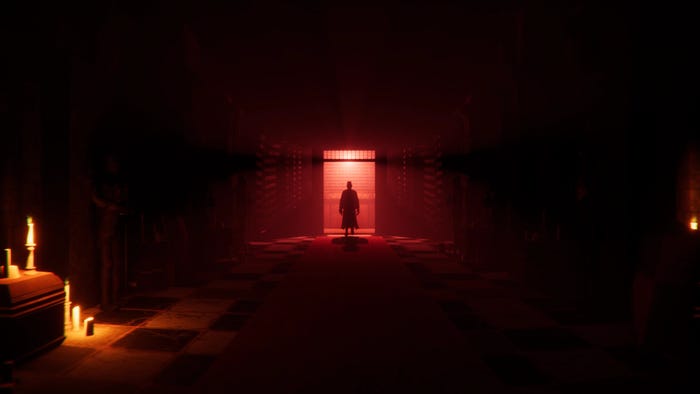Singaporean dev Witching Hour Studios’ fantasy strategy RPG Masquerada: Songs and Shadows has a gay character. Officials in the Singaporean government would rather it didn't.

In Witching Hour Studios’ fantasy strategy RPG Masquerada: Songs and Shadows, one of the supporting characters is gay, and this sexual identity is at odds with the society around him. This secondary story element would be a non-story if the game was being developed in most Western nations, but it's not being developed there. It's being developed in Singapore, where there are still laws against homosexuality.
Masquerada shows us what it means to develop a game that actively risks government backlash, and how to develop games with ongoing political events in mind.
Subtle (and not-so-subtle) censorship
Masquerada’s announcement before PAX East 2015 came with the reveal of Kalden, a blue-robed party member who follows the player-controlled hero Ciccero into battle... and who happens to be gay. Speaking to Gamasutra at PAX Prime, Witching Hour Studios' creative director Ian Gregory says that LGBT activism in Singapore has begun to shift popular opinion on these issues, but with current laws still in place, Kalden’s inclusion and backstory it's not the kind of storytelling that the Singaporean government wants to see.
Gregory adds that since the game’s been announced, civil servants with the Singaporean government approached him multiple times [albeit not in an "official" capacity - ed.] at industry events and suggested that the gay character be removed from the game. “They’ve been very coy,” he says. “They’ve never outright said ‘don’t do it,’ but it’s them saying ‘are you sure this is the best course of action for you?’”
In Singapore, says Gregory, that sort of subtle language carries more weight than it might in Western development communities, since the nation's arts industry relies on government grants. (Witching Hour Studios is currently working around this potential issue by signing with publisher Ysbyrd Games.)
But the government has also shown that they're willing to take artworks that they find objectionable off of the market. Previously, Singapore’s Media Development Authority has temporarily banned the distribution of games with gay characters such as Mass Effect, and has ordered LGBT-friendly children’s books like And Tango Makes Three and The White Swan Express yanked from library shelves.
Gregory says that his team is willing to risk censorship at home. He and Witching Hour Studios recognize that their creative effort also entails a responsibility to deliver a message to a global audience.
“I'm not gay, the majority of my creative team isn't gay, so we don't understand what it's like to be gay,” Gregory says. “But what we can do in our work is show in our game's fantasy world how we as straight people should treat gay people: As humans, as people with hopes and dreams, as people who can be allies.”
Politics as Unusual
 Gregory makes it clear that he isn't simply courting controversy-- Kalden’s story is a vital thread in Masquerada’s thematic tapestry, which situates current politcal debates in a Renaissance-era fantasy world.
Gregory makes it clear that he isn't simply courting controversy-- Kalden’s story is a vital thread in Masquerada’s thematic tapestry, which situates current politcal debates in a Renaissance-era fantasy world.
Kalden’s homosexuality isn’t just taboo in Masquerada. If the character dies without bearing children, his family history and the record of his own life will be wiped from existence by society. “So by being gay, you don't just put your identity on the line; it's also about the existence and remembrance of your whole ancestry.”
Other conflicts in the game’s story are drawn from modern issues as well. Gregory and his coworkers built the world of Masquerada from a modified D&D campaign where they’d introduced the supply and demand economics of modern capitalism. Since all magic is powered by expensive masks that the characters wear, access to magical power is unequally distributed among the haves and have-nots.
“I think what we’re representing in the game is a far worse version of what our society could become, and sometimes it feels as though we’re all going that way,” Gregory says.
Gregory says that developers should feel free to comment on the world around them in their games, and trust players to pick up on references to current events even if long development processes make the point of reference less timely.
The fantasy genre has long provided a way for storytellers to address issues that their society doesn't want to discuss by setting them in far-off worlds. (RPGs have proven this repeatedly.) Hopefully, the government pressure that Witching Hour Studios is facing will not prevent the game from finding an audience and sparking conversations in Singapore.
About the Author(s)
You May Also Like









